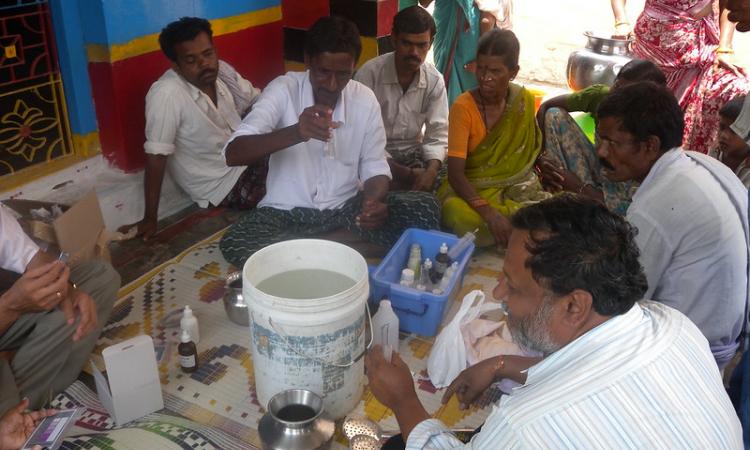
DDWS orders states to open up water testing laboratories to the public
The Department of Drinking Water and Sanitation (DDWS) has directed the states to open up water testing laboratories to the public, in order to empower people to be able to ascertain the quality of water being provided. The move is a part of the Har Ghar Nal Se Jal scheme that envisages potable drinking water in all 17.87 crore rural households in the country by 2024.
The states will soon be launching the exercise of setting up water quality testing laboratories at every district and block level. Along with this, the department is also training five people, mostly women, in every village to use the Field Test Kit for water quality surveillance.
Five states voice their opposition against the interlinking of rivers
The governments of Telangana, Odisha, Madhya Pradesh, Kerala and Karnataka have written to the Jal Shakti Ministry opposing linking projects in their respective states. While Kerala has passed a resolution against taking up the Pamba-Achankovil-Vaippar river linking project, Odisha has expressed its inability to go ahead with the Mahanadi–Godavari link as it will lead to large-scale submergence in the state. Similarly, Telangana is against the Godavari-Krishna link project due to water balance issue and Karnataka and Madhya Pradesh have opposed the Netravati-Hemavati link and the Parbati-Kalisindh-Chambal (PKC) link, respectively.
Dredging along the Brahmaputra not a feasible option to mitigate floods: Panel
According to the eight-member committee formed by the Assam government, dredging operations along the entire length of the Brahmaputra will not be a feasible option to mitigate its flood and erosion hazards. Moreover, massive dredging exercises would change the overall water quality status of the river that may have harmful impact on aquatic ecology and affect the riparian population. The report further pointed out that the past experiences of dredging of the Brahmaputra by the Inland Waterways Authority of India (IWAI) and water resources department, Assam, had been futile. However, the committee finds no problem in removing silt in the Brahmaputra for clearing bottlenecks in selected locations.
SC seeks plan for potable water supply in Shimla
Following the spread of several diseases due to contaminated water supply in Shimla, the Supreme Court has directed the Himachal Pradesh government and the civic body to submit a concrete action plan on the improvement of quality of water supply in the town. The Court has also directed that the quality of water supplied in the town should be checked every week and a report should be filed before it on whether water is potable or not and what is being done to ensure that pure water is supplied to the inhabitants of the state.
Water diversion to Marathwada will lead to water scarcity in city: Nashik civic body
In a letter to the state water resources department (WRD), the Nashik Municipal Corporation (NMC) has cautioned the former that any diversion of water from Mukane dam to the Marathwada region would lead to significant water scarcity in the city. The civic body has reminded the state government that water reservation from the dam to the city was made till 2041 and that the body had spent crores in creating infrastructure to draw water from it. The water reservation for NMC in Mukane dam is 28.32 million cubic metre (mcm) till 2021, 69.10 mcm till 2031 and 165.25 mcm till 2041.
This is a roundup of important policy matters from March 4 - 11, 2020. Also, read news this week.
/articles/under-har-ghar-nal-se-jal-states-open-water-testing-labs